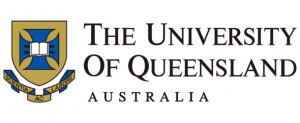Quantum News Briefs September 5: University of Queensland launches quantum computing initiative to advance biotechnology • NERSC & QuEra collaboration exploring neutral atom tech expanded for 2nd year • While the world races forward on quantum technologies, US quantum policy limps along • Quantum, generative-AI for biomanufacturing

University of Queensland launches quantum computing initiative to advance biotechnology
 The University of Queensland has launched a AU$45 million (~US$30.3 million) research initiative to position Australia as a global leader in quantum biotechnology, and tackle some of the world’s biggest challenges as per the September 5 news release.
The University of Queensland has launched a AU$45 million (~US$30.3 million) research initiative to position Australia as a global leader in quantum biotechnology, and tackle some of the world’s biggest challenges as per the September 5 news release.
Professor Warwick Bowen from UQ’s School of Mathematics and Physics, QUBIC is a multi-disciplinary collaboration involving 5 Australian universities, industry and government partners.
By 2045, this field is expected to generate 50,000 jobs and contribute $9 billion to Australia’s economy.
QUIBIC Director of Technology, Distinguished Professor Dayong Jin said the research will bridge quantum and the biological sciences. “By allowing us to observe biochemical pathways and detect early signs of disease, quantum biotechnology will transform our understanding of subcellular compartments,” Professor Jin said. “This innovation will significantly boost Australia’s capabilities in biotechnology, diagnostics and manufacturing, making us more competitive on the global stage.”
NERSC & QuEra collaboration exploring neutral atom tech expanded for 2nd year
 In the past year, the National Energy Research Scientific Computing Center (NERSC) teamed up with the Boston-based quantum computing company QuEra Computing, exploring one up-and-coming approach to quantum computing known as neutral-atom technology. After a successful first year punctuated with strong scientific results, the partnership has been extended, with plans to offer neutral-atom quantum computing
In the past year, the National Energy Research Scientific Computing Center (NERSC) teamed up with the Boston-based quantum computing company QuEra Computing, exploring one up-and-coming approach to quantum computing known as neutral-atom technology. After a successful first year punctuated with strong scientific results, the partnership has been extended, with plans to offer neutral-atom quantum computing  access to some users in the coming year as per the September 4 news release.
access to some users in the coming year as per the September 4 news release.
The collaboration between QuEra and NERSC began in March 2023 as the NERSC quantum computing team evaluated a variety of industry partners and their approaches to quantum computing. QuEra’s results were promising – and at the time, no U.S. Department of Energy (DOE) lab had access to commercial neutral-atom technology. A partnership with QuEra offered a way to gain access to this new technology.
Neutral atoms can be used to build quantum computing devices. The technology works by trapping these atoms – neutral atoms rather than charged ions, hence the name – with lasers called optical tweezers and exciting their outer electrons to higher energy states.
By using optical tweezers, researchers can control and arrange the atoms into useful configurations, even rearranging them to try out particular geometries or compute the properties of certain materials.
In Other News: Federal News Networks reports “While the world races forward on quantum technologies, US quantum policy limps along”

.
A stagnated U.S. policy process threatens to make U.S. quantum programs outdated as per September 3 article by Allison Schwartz in Federal News Network.
The National Quantum Initiative Act (NQI) is a crucial vehicle for updating quantum programs. Yet, Schwartz explains, “legislation to reauthorize the NQI has been limping through Congress even though it has strong bipartisan support”. The NQI expired on September 30, 2023, but to date, only the House Science, Space and Technology Committee has acted. The committee bill supports needed modifications to properly focus quantum programs, including balancing longer-term hardware advancements with development and deployment of near-term quantum applications that can address pressing public-sector challenges.
Although U.S. quantum programs are still being funded, the gap between program needs versus program implementation will continue to grow unless Congress enacts reauthorized NQI language that will rebalance and refocus quantum programs by the end of the year.
It’s been almost a year since the NQI reauthorization expired. With less than 40 days left to legislate in this congressional session, Congress must fully reauthorize the NQI. Failure to do so puts U.S. technological leadership at risk and slows the development and adoption of near-term quantum applications across the federal government.
Meanwhile, the world of quantum is racing ahead. Current worldwide investments in quantum science and technology exceed $40 billion, and the global quantum technology market is projected to reach $106 billion by 2040. China has reportedly committed to provide $15 billion in public funds toward quantum technology.
In Other News: Gen reports “Quantum, generative-AI for biomanufacturing”
 Sqale, incubated at the BioInnovation Institute in Denmark, is pioneering a method, dubbed BioBox™, that brings a faster and more affordable approach to modular, decentralized biomanufacturing according to Gail Dutton in September 4 Genetic Engineering News (GEN)>
Sqale, incubated at the BioInnovation Institute in Denmark, is pioneering a method, dubbed BioBox™, that brings a faster and more affordable approach to modular, decentralized biomanufacturing according to Gail Dutton in September 4 Genetic Engineering News (GEN)>
Squale is using what co-founder Seyed Mansouri, PhD, calls “quantum generative algorithms.” Possible applications include making small indication therapeutics and vaccines, such as HIV and Zika vaccines, as well as gene therapies and anti-venoms.
Sqale’s founders are rethinking therapeutic manufacturing from the ground up.They were approached 18 months ago by Zapata AI explaining, “It was looking to apply industrial generative artificial intelligence (AI) algorithms enhanced with quantum methods to pharmaceutical manufacturing.”
The approach applies “quantum-based algorithms to generate models in industrial use cases to extrapolate from known data to generate high-accuracy datasets by learning situation-specific rules in novel regimes,” Mansouri explained. The resulting virtual sensors are being used by Insilico Medicine and St. Jude Children’s Research Hospital to speed drug discovery and quickly identify oncology drug candidates with the highest potential.



















